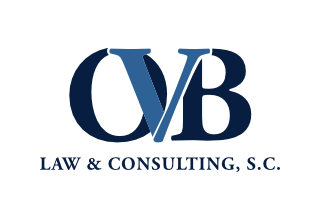On March 18, 2020, the President signed a new law that will affect most small businesses across the country and their employees.
The Families First Coronavirus Response Act (the “Act”) goes into effect no later than April 2, 2020. The law combines several pieces of legislation intended to deal with the unprecedented coronavirus (COVID-19) global pandemic. The law provides for free coronavirus testing, expands food assistance programs, unemployment benefits, paid sick leave and paid family leave, tax credits, and additional emergency budgetary plans.
Small businesses and their employees are particularly interested in the paid leave and paid family leave portions of the law. We’ve reviewed the Act and prepared this summary to assist small businesses and their employees with preparing for and complying with the Act.
The Act requires small businesses to provide paid medical and sick leave for certain employees affected by the coronavirus. We’ve read and analyzed the bill. Below are highlights of the crucial employment law ramifications for small businesses as it relates to both paid family and medical leave and paid sick leave.
Paid Medical Leave- Emergency Paid Family and Medical Leave Expansion Act (EFMLA)
The Act extends FMLA rights and coverage to private companies under the Emergency Paid Family and Medical Leave Expansion Act.
- Covered Employers: Companies with less than 500 employees.
- Eligible Employees: Those who have been employed for at least 30 days with the company.
- Qualifying Circumstances: Applies to a “qualifying need related to a public health emergency.” This following specific circumstances are covered:
- Employee unable to work (or telework) because employee needs to leave to care for son or daughter (under the age of 18) whose school has been close, or whose childcare provided is unavailable due to the an emergency with respect to COVID-19 declared by a federal, state or local authority.
- Duration of Leave: The maximum duration of the leave under the Act is 12 weeks. The first 10 days can be unpaid. Any additional EFMLA leave days shall be paid by the employer (who may be entitled to receive corresponding tax credits). Employee may elect to substitute any accrued vacation leave, personal leave, or sick leave for unpaid leave.
- Amount of Wages: Not less than 2/3 of employee’s regular rate of pay and the number of hours the employee would otherwise be normally scheduled to work.
- Special rules may apply for part-time employees as employees who work on variable schedules.
- Wage Amount Cap: Employers are not required to pay an amount that exceeds $200 per day or greater than $10,000 aggregate.
- Notice to Employer: When possible and when leave is foreseeable, employees must provide employers with as much notice of as practicable.
- Restoration Obligations: Employers are required to comply with the typical FMLA provisions that mandate that an employer restore an eligible employee to the position they previously held (or its equivalent) after they return from leave.
-
- Exemptions: Employers with fewer than 25 employees can be exempted from restoration obligations if:
- Employer makes reasonable efforts during the “contact period” to restore or reinstate the employee’s position (or equivalent position); and
- The position held by employee no longer exists due to economic conditions or other changes in the operating conditions of the employer that (a) affect employment, and (b) are caused by a public health emergency during the period of leave.
- Exemptions: Employers with fewer than 25 employees can be exempted from restoration obligations if:
-
- Contact Period: means the earlier of (a) one year following the end of the declaration of the public health emergency caused by the coronavirus (by federal, state, or local authority); or (b) one year after 12 weeks from the date an employee’s EFLMA leave begins.
- Liability for Non-Compliance: Employers with less than 50 employees that violate the EFLMA are immune from civil actions from their employees. However, the Department of Labor can still investigate and embark on civil actions against all employers who violate the EFMLA.
- Expiration Date: The EFMLA has a sunset provision and expires December 31, 2020.
Paid Sick Leave – Emergency Paid Sick Leave Act (EPSLA)
The law also includes an Emergency Paid Sick Leave Act that mandates small businesses to provide paid sick leave to their employees. The EPSLA provides very broad coverage for varying circumstances.
- Covered Employers: Companies with less than 500 employees.
- Eligible Employees: Unlike the EFMLA, the EPSLA applies to all employees regardless of how long they have been working for employer
- Exempt Employees: Employers of health care providers and emergency responders may elect to exclude their employees from the application of the EPSLA.
- Qualifying Circumstances: Requires paid sick time if the employee is unable to work (or telework) due to a need for leave due to the following reasons:
- Government quarantine or isolation order (relating to the coronavirus)
- Employees advised by health care provider
- Employees experiencing symptoms and seeking diagnosis
- Caring for an individual who is either quarantined by order or self-quarantined
- Caring for son or daughter who is out of school due to the coronavirus.
- Employee experiencing substantial symptoms specified by the Secretary of Health and Human Services in consultation with the Secretary of the Treasury and the Secretary of Labor
- Duration of Leave:
- Full-time employees- 80 hours
- Part-time employees- average number of hours such an employee works on average, over a 2-week period.
- Amount of Wages: Employers required to pay the greater of: (a) employee’s regular rate or (b) applicable minimum wage. However, if leave is taken to care for family members, rather than their own illness, employers are only required to pay 2/3 of employee’s regular pay.
- Caps on Wages:
- Leave taken by Employee due to direct impact of coronavirus on the employee: $511 per day and $5,110 in aggregate.
- Leave taken by Employee due to indirect impact of coronavirus on the employee (caring for others or children): $200 per day and $2,000 in aggregate.
- Carryover: Paid sick time under the EPSLA cannot be carried over from one year to the next. It is a use it or lose it benefit.
- Relationship to Other Company Provided Leave: Employees may first use customary leave provided by the Employer before using the benefits of the EPSLA. But Employers cannot require that the employee use other paid leave provided by the employer first before accessing the benefits of the EPSLA.
- No Retaliation/Discrimination: Employers are not allowed to retaliate (e.g. fire) or discriminate against employees that access the benefits of the EPSLA or make complaints regarding denial of EPSLA benefits.
- Posting of Notice: Employers must post and keep posted (in an area where they customarily post notices), a notice of the EPSLA requirements. The Department of Labor is tasked with preparing and approving a standardized notice by March 25, 2020. Employer can require reasonable notice from employee for an employee to continue to receive paid sick time.
- Enforcement: Employees can bring civil action against employers that violate the EPSLA or retaliate against employees for accessing the benefits of the EPSLA. These will be treated and maintained like Fair Labor Standards Act (FLSA) cases.
- Limited Possible Exemptions: The EPSLA authorizes the Department of Labor to issue regulations that exclude:
-
- Small businesses with less than 50 employees. This exemption will be limited to only paid sick time request of employees seeking leave to care for a son or daughter due to school closures or lack of childcare provider.
- This exemption could apply if the employer can demonstrate that the provision of such leave would “jeopardize the viability of the business as a going concern.”
- Small businesses with less than 50 employees. This exemption will be limited to only paid sick time request of employees seeking leave to care for a son or daughter due to school closures or lack of childcare provider.
- Expiration Date: The EPSLA has a sunset provision and expires December 31, 2020.
Tax Credits for Employers
The Act includes terms that provide employers with refundable tax credits against payroll taxes for each calendar quarter. These tax credits will be up to 100 percent of the qualified sick and family leave wages paid by employers in each quarter.
Moving Forward
As with most things involving the coronavirus pandemic, things remain in flux. Some more pointed guidelines from the Department of Labor are expected soon. Further, the state of Wisconsin and other states may also enact additional laws that may affect closely held businesses and employee protections.
The new paid leave laws have real ramifications for small employers. During this time, we urge employers to be vigilant and to become familiar with these laws and their responsibilities. Affected employers must be proactive, as much as possible, and versatile in adapting to the new terrain.
Right now, employers should be reviewing their current leave and employment policies, drafting new EFMLA and PSLA policies, strategizing on communicating with employees on these new laws, posting required notices, and embarking on rigorous and pragmatic business planning. Those small businesses that may qualify for some of the provided exemptions under the laws must also undergo more detailed analysis on how these laws could affect their businesses as a going concern.
The OVB Law & Consulting team is available to assist small businesses and our clients with their business and legal needs as it relates to complying with these new mandates.



